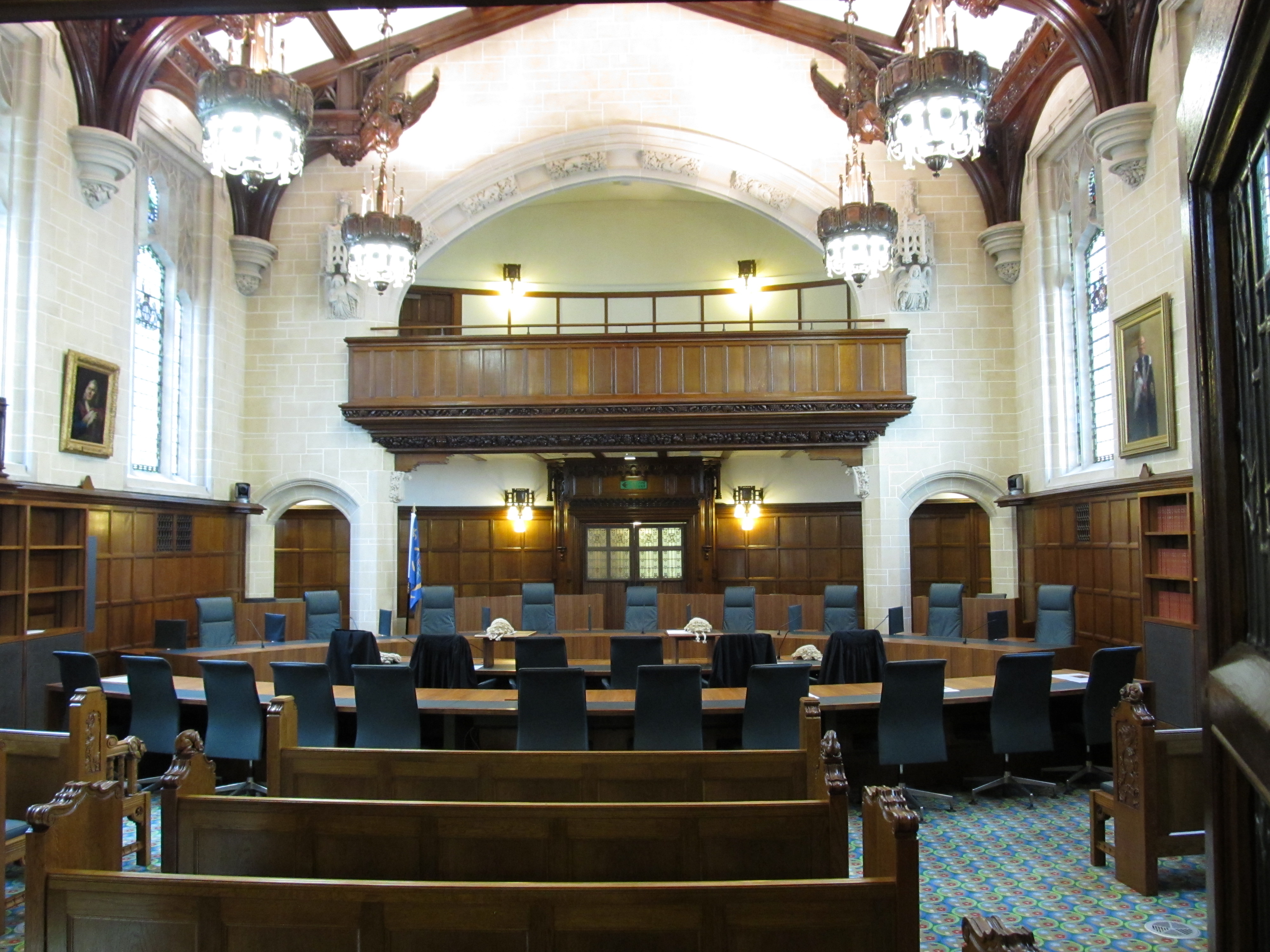26 September 2019
Intelligent Machine
The Supreme Court’s ruling.
By Neil Tidmarsh
 What a thrill it is, what a joy, to watch a fully-functioning machine go through its paces. That model steam engine you had as a kid. That motorbike you took apart and put back together as a teenager. The internal combustion engine. The British constitution.
What a thrill it is, what a joy, to watch a fully-functioning machine go through its paces. That model steam engine you had as a kid. That motorbike you took apart and put back together as a teenager. The internal combustion engine. The British constitution.
And the more complex the machine – and the more it can take as it’s driven harder and harder – the bigger the thrill, the greater the joy.
Who says the UK is in constitutional melt-down? This week’s Supreme Court ruling proved that the constitution is functioning very well indeed, thank you very much, in spite of the enormous pressures and forces it’s having to contain.
And who says the UK needs a written constitution? Surely it’s better to have a system based on freedom (you can do whatever you like, as long as it’s not explicitly prohibited) than one based on regulation and restriction (you can’t do anything unless it’s explicitly permitted). What’s more, an unwritten constitution allows for evolution and adjustment, which is exactly what has happened here: Boris did something which is now explicitly prohibited; he didn’t break a law – he broke a convention – but the Court’s intervention means that that convention is now a law. The machine is not only functioning smoothly but improving itself as it goes along, enhancing its design and construction as it meets unprecedented challenges.
In today’s The Times, Lord Sumption regrets that the constitution’s “conventions have hardened into law” as a consequence of Boris’s “constitutional vandalism”, but admits that this is better than “leaving a void governed by neither convention nor law in which the government can do what it likes”. He also wrote “the judgement should be welcomed even by those who believe, as I do, that politics is not the business of courts of law.”
The question of whether they had any business here was tackled head-on by the Supreme Court judges. They cited a ruling from 1611 to show that courts have acted against political powers for at least four hundred years, so the prorogation was indeed “justiciable” – it wasn’t a merely political matter but one in which they were entitled to interfere. Besides, if the courts can’t ensure that the government isn’t above the law, then who can? The court was merely insisting on good governance, it wasn’t interfering with policy.
That policy is, of course, Brexit. Although even Brexiteers should welcome the court’s judgement on Boris’s unconstitutional tactics (the preservation of the constitution and in particular the supremacy of parliament is what Brexiteers are fighting for, after all, and the end never justifies the means), some will no doubt accuse the Court of trying to derail Brexit. Nonsense. Those who initiated the judicial review may well be enemies of Brexit and may well be trying to undermine it, but the Supreme Court judges themselves were too clever to go anywhere near this hot potato. As it happens, they didn’t have to go anywhere near it because, ironically, Boris’s government had made sure that this particular delicacy wasn’t on the Court’s menu. The government had insisted all along that the prorogation had nothing to do with Brexit. No, no, it was just about preparing the Queen’s speech and a new session of parliament. Nothing more than that. Nothing to do with stifling debate about… about anything at all.
Boris, indeed, was hoist by this apparent disingenuousness. It was this weak justification of the prorogation which did for him. The whole ruling came down to this simple and brilliant judgement: anyone who gags parliament for five weeks had better have a bloody good reason for doing so, and Boris’s reason – the new session, Queen’s speech – wasn’t anywhere near good enough. No need to second-guess any ulterior motives or consider any actual consequences – the prorogation was unlawful not simply “because it had the effect of frustrating or preventing parliament from carrying out its constitutional functions” (it’s difficult to imagine any prorogation not having that effect, whether intentionally or not) but because it did so “without reasonable justification.” Five weeks to prepare a Queen’s Speech?! You only need five days for that!
Where does this leave Boris? Even Nigel Farage has called for his resignation, declaring that “The calling of a Queen’s Speech and prorogation is the worst political decision ever”. But it seems that Boris is going to tough it out, no doubt still hoping for Brexit on 31 October followed by a general election. In his defence, it’s worth remembering that, even though he might have acted like a tin-pot dictator, his motives for doing so aren’t those typical of the tin-pot dictator – personal wealth, personal power, etc. – but to accomplish the will of the people as expressed via that referendum three years ago. And if he doesn’t seem aware of the enormity of his defeat or of the serious implications of his illegal tactic, is that because he saw that tactic as just a weapon in his “massive disruption” arsenal which he launched against his enemies for the shock and awe effect as much as in the hope that it might actually work? If that’s the case, one wonders what other weapons are lurking in that arsenal. Perhaps Dominic Cummings is reaching into it at this very moment, selecting something new and primed and handing it (fuse already hissing and sparking) to Boris.
At least we know now that it will take a lot more than loud bangs and clouds of thick smoke to knock the constitutional machine off course.


